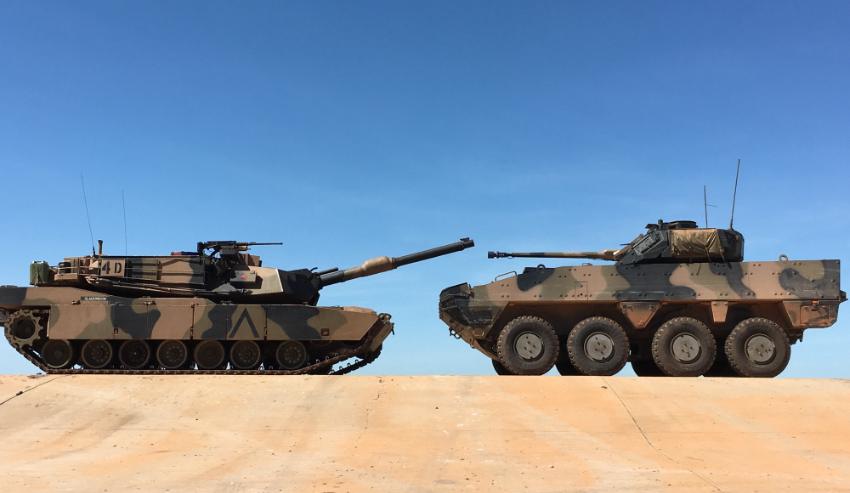Key defence industry pundits have slammed the current dynamic of defence procurement that are seeing states go head-to-head to secure work from the federal government.
To continue reading the rest of this article, please log in.
Create free account to get unlimited news articles and more!
The NSW Legislative Council’s standing committee on state development has heard from the chief executives of Thales Australia and Quickstep Holdings, who stressed that the current process is seeing taxpayer funds wasted.
Chris Jenkins, CEO of Thales Australia, argued that the current state of things will see more 'valleys of death' created if project decisions are made in favour of state-backed funds and investment rather than sustainable decisions.
"Businesses need to be sustainable for the long-term on their own merits, and our businesses look at the long-term business case and work out: does it make sense to establish, in the case of that LAND 400 project, a build facility that will set up a project for a period of time and then that project will end and then what will be left? In the shipbuilding sector it was called the valley of death for a period of time where projects came, projects went and there was an aftermath," Jenkins explained.
"Projects need to be in the context of a sustainable business enterprise ... The only support that we would seek from the New South Wales government – we are not asking for any money; that is not the point, but what we do think, though, is that it is very important for New South Wales to be on the front foot in ensuring that this national enterprise of things like submarines and future frigates is not just focusing on South Australia where the ship gets built; it is all of the knowledge that Australia has, all of the engineers that are coming through university today or kids that have not even thought to be engineers and encouraging them to be part of that future workforce that will not only create the system in the first instance but make sure it stays at the cutting-edge of performance right through the life of that ship, which could be 40 or 50 years."
Quickstep CEO Mark Burgess echoed Jenkins' sentiments about sustainment issues across defence projects.
"I think interstate competition benefits the foreign original equipment manufacturers [OEMs] more than it benefits anybody else," said Burgess.
"Industrial policy is a collaborative effort rather than a competitive effort. I completely agree with Mr Jenkins' sentiment about business sustainability. There is a lot of presentational benefit of large-scale programs being attracted to a specific place but you have to consider it on the basis of sustainability.
"The way we [Quickstep Holdings] look at this is that we have a very capable manufacturing base in Bankstown. I could come to you guys and say, 'We've got an R&D site in Geelong. I would like you and the Victorian government to bid each other up on how much money you can give me to attract the R&Ds to New South Wales'. I do not believe it is in anybody's interest to do that, but I could do that because the state rivalry allows that to happen.
"Our approach would much rather be, 'We have a sustainable business now. We need your support in ensuring its long-term sustainability by investing and staying at the cutting-edge of manufacturing technology, of securing advocacy that we can win on a competitive basis, good business, largely in the export environment because that is from where we will derive sustainability'.
"We will have a similar parallel dialogue with the Victorian government. Our research and development capability as it exists now is in Geelong. We want to build that and grow it and try to come up with a business strategy where those two things are mutually supportive and we have cordial and positive relations with both state governments. The reality is you could easily play that. You could take advantage of that state rivalry and in my opinion it would be to the detriment of industry and certainly the taxpayers."
The industry leaders' comments come just months after Victoria's defence industry advocate Greg Combet labelled the state v state bidding model as “less than optimal” during a Defence Connect podcast.
"There's no working together on LAND 400, and largely because of the way the procurement has been conducted by the Commonwealth. The states were essentially invited to compete and to treat with the bidders to try and attract them and that's led to a less than optimal economic outcome, in my opinion," said Combet.
"I've got a funny, I suppose, background for this because having been a Commonwealth government defence procurement minister, I know how inefficient it is to have the states competing in this way."
The former parliamentary secretary for defence procurement said the process was a way for the federal government to pass on infrastructure costs to the winning state.
"What it is is a cost transfer from the Commonwealth to the states. Instead of picking up any of the tab for the infrastructure, for example, Defence shifts all of that to the states who are out there competing amongst each other," Combet said.
"And the extent to which prime contractors then discount their tender price for the infrastructure that's laid on and the cash incentives that's laid on by the states, is moot, I think. And that's a less than optimal outcome for taxpayers."

 Login
Login







